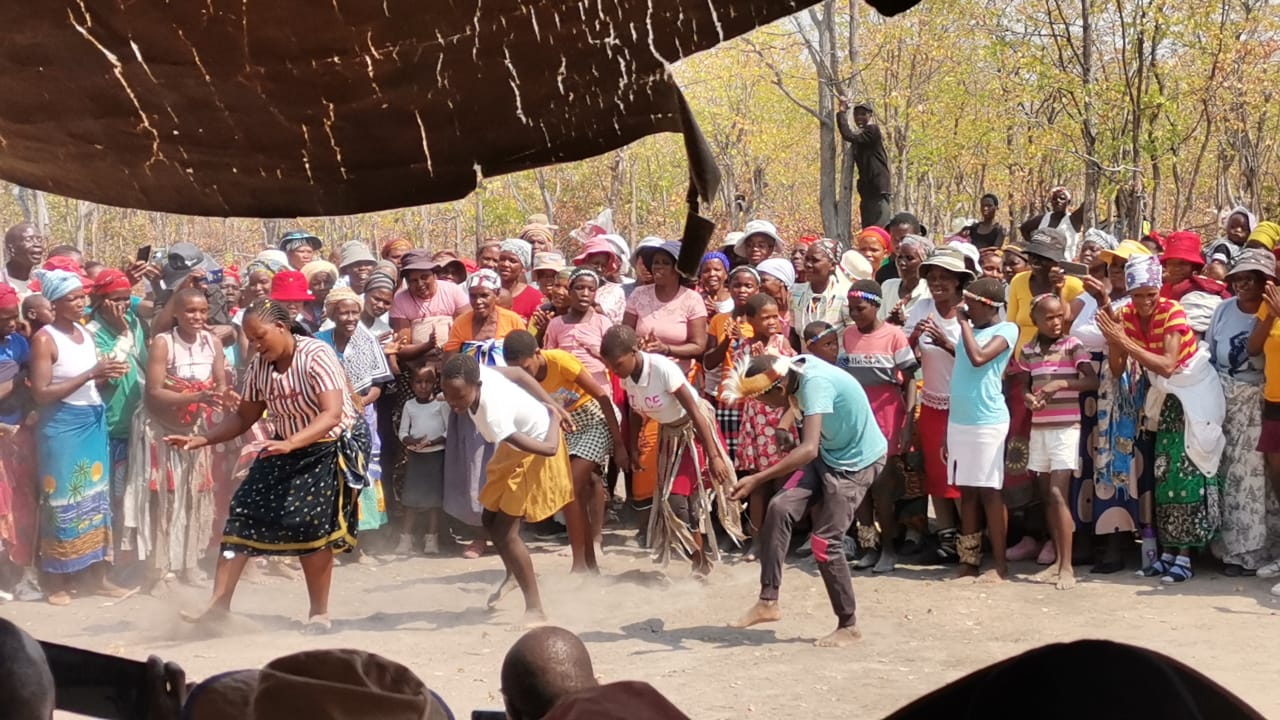The San community celebrated the Ibhoro Bush Cultural Festival over the weekend, aiming to reconnect with their cultural roots and revive the San language.
Traditionally, this event served as a form of thanksgiving or a ritual performed when someone fell ill. Today, it stands as a vital effort to preserve a culture that is slowly eroding, particularly among the youth who often associate being San with a lower social status.
The San community primarily resides in the outskirts of Bulilima and Tsholotsho District. Historically, they survived through hunting and gathering, relying on meat and fruits as staple foods. However, they have since adapted to other traditions in Zimbabwe.
Efforts to promote and preserve their culture gained momentum in 2013 under the new constitution.
Tsoro-o-tso San Development Trust Director, Davy Ndlovu, explained that the cultural event was organised to remind the community, especially the youth, about their heritage, with a particular focus on the San language.
“The Ibhoro Bush Festival is usually celebrated on August 9 to commemorate the International Day for the World’s Indigenous Languages. This year’s commemorations were rescheduled. The event celebrates our culture as San people with a specific focus on language. This festival is conducted in the bush, as Bhoro was never celebrated at home; it was also not conducted during the day but at night when people were asking for rain, ukulumeka, or when people were just happy,” Ndlovu said.
“Celebrating it in the bush is a way to remember our culture, since our ancestors did not have homes. It’s a way of trying to go back to our roots,” Ndlovu added.
He expressed concern over the decline of the San language, noting that it is no longer widely spoken.
“Our language has been eroded; it is no longer spoken by most people. Old people are the only ones still speaking it, and they are over 60 years old. If we don’t utilise them and develop other strategies, they will pass on, and it will mean the death of the language,” Ndlovu said.
During the festival, there was an opportunity to impart knowledge to the younger generation about family life and survival skills.
“We hold these festivals in the bush and have conversations with the elderly about how they lived long ago, the roles of girls and boys, and we send some elders with the boys into the bush to teach them how to live and survive as their ancestors did through hunting and gathering.”
“The boys are also taught what they need to know when they are ready to marry, while the girls learn from the women how to manage their homes. This is an important cultural day,” he added.
Ndlovu lamented that many youths associate the Ibhoro Bush Cultural Festival with a low social status and avoid participating in such events.
“There are few young people interested in these cultural events, and this is also contributing to the disappearance of the language. Young people have been taught that this language is primitive, so they try to distance themselves from it and their roots to gain respect from others. They prefer to be associated with other ethnic groups like the Ndebele or Kalanga. However, school-going children are eager to participate as they are now the dancers, although many older youths are still not interested,” Ndlovu said.

